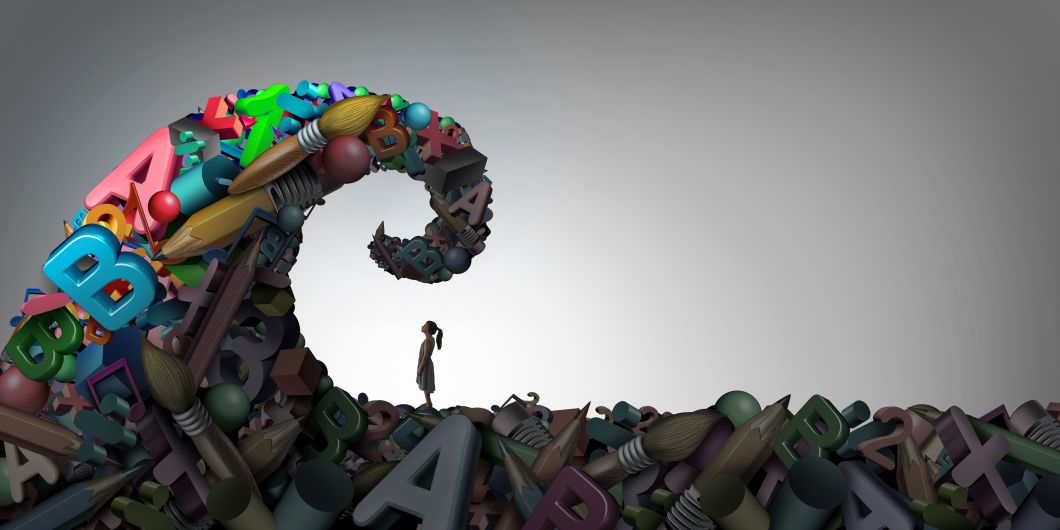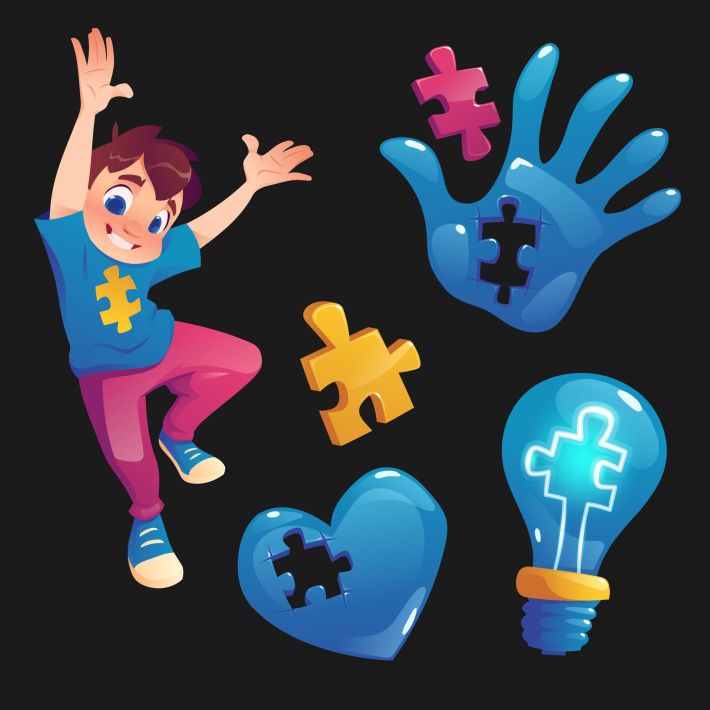- in Mental Health by Tony
- |
- 1 comments
Developmental disability

In this article, you will learn more about what developmental disabilities are, the associated risk factors, and different interventions that can help individuals with developmental disabilities reach their goals.
Developmental disability
Developmental disability is a term used to describe physical or mental impairments caused by a particular disorders or illnesses. It includes conditions such as Autism, now called an autism spectrum disorder (ASD), cerebral palsy, Down, and Fetal Alcohol Syndrome.
Individuals with developmental disabilities often experience physical, psychological and communication difficulties that appear before 22 years of age and usually last throughout a person’s lifetime.
More...
Developmental disabilities and child development refer to a set of impairments that may arise from physical, mental or emotional conditions. These can range from mild to severe and affect a person's cognitive, physical, social and behavioural functioning.
What is child development?
Child development is an exciting process! It refers to how babies and children grow, learn, and master different life skills.
Four key areas cover physical, cognitive, language, and social-emotional development.
Physical development looks at strength and physical abilities;
cognitive development involves thinking and problem-solving.
Language development focuses on communication and understanding.
Social-emotional development deals with how children interact with others and handle their feelings.
Development milestones
Development milestones mark typical growth stages and are achieved by most children around the same age. However, each child develops individually, making their own timeline.

What Are Developmental Disabilities?
Developmental disabilities are delays or absence in their development milestones that adversely affect a person’s ability to function in daily life. These delays may affect motor skills, speech, learning and other vital areas of functioning.
Depending on the severity of impairments and limitations of the disability, individuals may have difficulties performing tasks independently (such as taking care of oneself) or interacting with others (for example, speaking).
Risk Factors & Causes Associated With Developmental Disability
Risk factors and causes associated with developmental disability vary by diagnosis. Common risk factors include:
- Family history of intellectual disability/developmental delay
- Advanced parental age.
- Maternal drug use/exposure.
- Premature birth or low birth weight.
- Prenatal exposure to toxins such as alcohol or lead.
- Exposure to environmental toxins such as lead paint.
- Infections during pregnancy.
Genetics plays a role in some cases; lack of access to routine medical care in early childhood years before symptoms become more pronounced from the age of twelve.
Seek Support
To help your child reach their full potential, it is very important to get help as early as possible. Talk with your child’s doctor if you think there could be a problem.
Reaching out to other people who also have family members affected by a developmental disability can provide you with valuable support in dealing with your own situation.
A child psychologist or a developmental-behavioural paediatrician is dedicated to assisting and advising those taking care of individuals with various developmental disabilities, including national organisations and online forums.
Developmental disabilities make it difficult for people to do everyday activities and gain the skills to reach their full potential.
Developmental disabilities can range from mild to severe, depending on the individual’s abilities and the support they have around them.
Stay Positive
Good coping skills are essential when caring for someone with a developmental disability. It’s easy to become overwhelmed at times but try your best to remain positive throughout difficult moments—it will make things easier for everyone involved in caring for the individual affected by this condition over time. Communication strategies and setting realistic goals will also benefit caregivers and loved ones.
What are the symptoms of being neurodivergent?
The term “neurodivergent” came from the related term “neurodiversity.” Australian sociologist Judy Singer coined “neurodiversity” in 1998 to recognise that everyone’s brain develops uniquely.
“Neurodivergent” isn’t a medical term, condition or diagnosis. People who are neurodivergent have differences in the way their brain works.
Experts also believe several accomplished historical figures were neurodivergent, based on evidence from their lives.
Those include:
- Nobel Prize-winning physicist and chemist Marie Curie.
- Nobel Prize-winning theoretical physicist Albert Einstein.
- Artist Vincent van Gogh.
- Inventor and engineer Nikola Tesla.
- Author F. Scott Fitzgerald.
Intellectual disability
Intellectual disability (formerly called mental retardation) is a disability characterised by significant limitations in intellectual functioning and adaptive behaviour, covering many everyday social and practical skills.
Intellectual disabilities are disorders that originate before 18 years of age, possibly resulting from physical causes such as cerebral palsy, autism, or non-physical causes such as lack of stimulation.
The term developmental disability encompasses people with intellectual disabilities, but also includes physical disabilities.
Whereas, intellectual disability and developmental disability are different terms used to describe below-average intellectual functioning and difficulties with specific life skills. On the other hand, developmental disabilities are disabilities caused by an impairment or disruption in physical, learning, language or behavioural development.
Different Types Of Interventions For Individuals With Developmental Disabilities
Interventions for individuals with developmental disabilities aim at helping individuals reach their full potential within their environment by minimising barriers and increasing support.
Interventions may include behaviour therapy, physical therapy, occupational therapy, social interaction strategies, problem-solving techniques, adaptive communication skills, etc., along with proper educational support, which could substantially improve the overall quality of life for an individual living with any type or severities of developmental disability diagnoses.
As each individual is unique in making significant improvements, tailored interventions may also be necessary so that they can effectively participate within their communities and lead long, meaningful lives.

[…] Developmental disability refers to a group of conditions that affect an individual's physical, cognitive, and/or behavioural development. It is typically diagnosed during childhood and can result in challenges in areas such as communication, social interaction, learning, self-care, and independent living skills. Developmental disabilities are often caused by genetic or environmental factors and require ongoing support and interventions to promote optimal functioning. […]